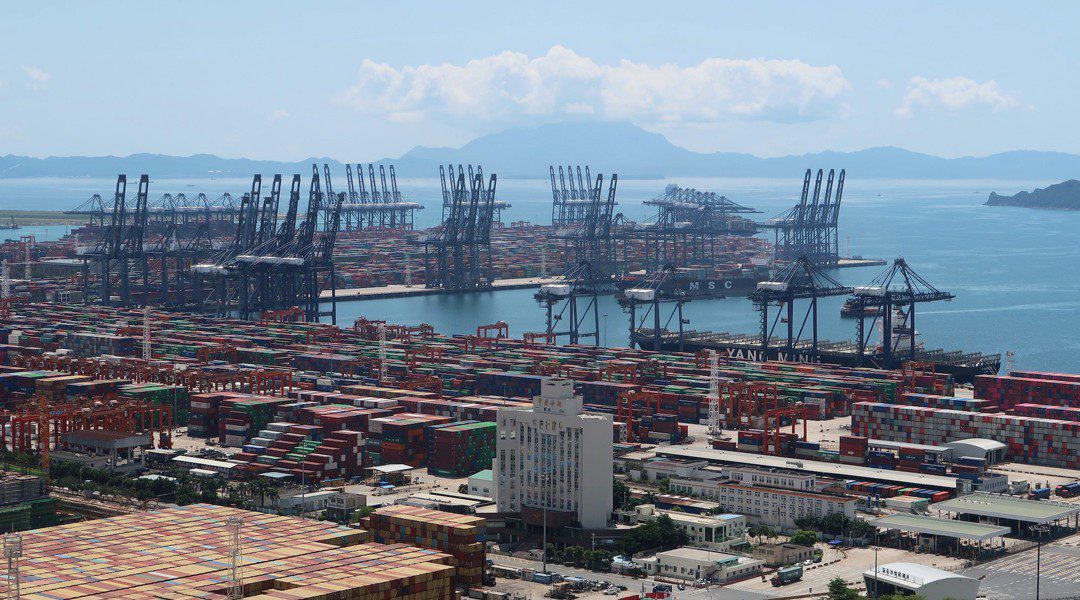On October 17, the International Maritime Organization (IMO) decided to postpone the implementation of the “Net Zero Framework” during a special session of the Marine Environment Protection Committee (MEPC), sparking widespread attention and strong reactions from the shipping industry, governments, and environmental organizations.
Postponement of the “Net Zero Framework”
The IMO approved the draft “Net Zero Framework” in April 2025, aiming to promote the global shipping industry’s achievement of net-zero greenhouse gas (GHG) emission targets. This framework is considered a key component of the draft amendments to Annex VI of the International Convention for the Prevention of Pollution from Ships (MARPOL). It proposes a set of global fuel standards and a greenhouse gas emission pricing mechanism to address the global challenges posed by climate change. However, the advancement of this process has faced opposition from multiple countries and stakeholders.
Due to strong objections from the United States and Saudi Arabia, particularly regarding the global carbon pricing mechanism and fuel standards involved in the “Net Zero Framework,” the IMO decided to postpone the resolution on the “Net Zero Framework,” planning to review it again in 2026. This decision means the international shipping industry will face a longer period of uncertainty.
Reactions from Various Parties: A Mix of Disappointment and Relief
U.S. Secretary of State Marco Rubio believed that the voting outcome was a continuation of the policies of former U.S. President Donald Trump. He stated that this postponement decision “prevented the implementation of a global shipping carbon tax,” thereby preserving U.S. economic interests and energy security. Meanwhile, support from oil-exporting countries like Saudi Arabia also reflects these nations’ concerns about the potential negative economic impacts of a carbon emission pricing mechanism.
However, organizations and countries supporting global decarbonization regulations expressed disappointment at this postponement. The World Shipping Council (WSC) emphasized that the IMO should continue to advance the framework’s refinement within the next 12 months to ensure the shipping industry can move towards the goal of achieving net-zero emissions by 2050. The Council pointed out that the shipping industry has already invested $150 billion in the green fuel sector, and liner companies remain committed to transitioning to low-carbon operations.
Conversely, parties opposing the current version of the “Net Zero Framework” view this postponement as buying more time for the industry to address uncertainties and technical bottlenecks. The International Association of Independent Tanker Owners (Intertanko) stated that the industry’s technological pathways should remain flexible, encompassing diverse options including biofuels, liquefied natural gas (LNG), and carbon capture technology.
Investment Uncertainty: Shipowners’ “Wait and Prepare”
For global shipowners, one of the biggest challenges is how to make long-term investment decisions in the absence of a clear policy framework. Shipowners are already aware that to comply with the IMO’s greenhouse gas emission targets, they need to gradually transition to low-carbon or zero-carbon emission ships. To this end, shipowners not only need to invest significant funds in purchasing new ships or retrofitting existing vessels but also need to develop new fuel supply chains, such as green ammonia, liquefied natural gas (LNG), and biofuels.
However, due to the postponed implementation of the “Net Zero Framework,” shipowners face the risk of policy uncertainty. Many shipowners are waiting for the International Maritime Organization (IMO) to further clarify the policy direction and implementation timeline before deciding whether to undertake large-scale technological transformations or fleet renewals. For example, although many large shipping companies have already started investing in renewable fuels and zero-emission technologies, due to the framework’s delay, many small and medium-sized shipowners are still观望, fearing that premature investment could lead to unnecessary economic losses or that technological and market conditions are not yet mature.
For those shipowners who have actively engaged in the green transition, the postponement of the “Net Zero Framework” undoubtedly exacerbates their operational uncertainty. Although many large shipowners and fleets have already begun investing in green fuels, zero-emission ships, and related technologies, the decision to delay poses more risks to their strategic planning and investment decisions.
These shipowners have typically already made substantial capital investments in green shipping technology—for example, upgrading ships to adapt to green fuels like ammonia and LNG, or purchasing new environmentally friendly ships that can meet future emission standards. However, due to global regulatory uncertainty, especially regarding changes in fuel standards and emission pricing mechanisms, they face a situation where returns cannot be accurately predicted.
Looking Ahead: Coexistence of Solutions and Challenges
Although the postponement of the “Net Zero Framework” has sparked intense debate, the shipping industry still needs to address the pressure of decarbonization transformation in the coming years. International institutions like the IMF predict that without an effective global carbon emission pricing mechanism, global climate change goals will be difficult to achieve. Therefore, despite the challenges, the trend towards global shipping decarbonization will not change.
The International Chamber of Shipping (ICS) pointed out that in the next 12 months, the IMO should focus on revising the “Net Zero Framework,” eliminating loopholes and uncertainties within the framework to ensure the global shipping industry can achieve its decarbonization goals. In this process, global shipping companies must increase technological innovation and infrastructure investment, particularly in areas such as green fuel production and carbon capture and storage technology.
In summary, although the postponement of the “Net Zero Framework” has caused significant fluctuations in the global shipping industry, this decision also provides an opportunity for reflection and adjustment for all parties. The transformation process of the shipping industry continues, and how to balance the relationship between economy, environment, and technology will become the most critical issue for the global shipping industry in the coming years.
The postponement of the “Net Zero Framework” is undoubtedly a double-edged sword for shipowners. On one hand, the decision to delay buys shipowners more time to address the many challenges posed by the framework; on the other hand, this delay also means their decarbonization strategies will continue to face uncertainty, especially regarding how to support future large-scale investments.





